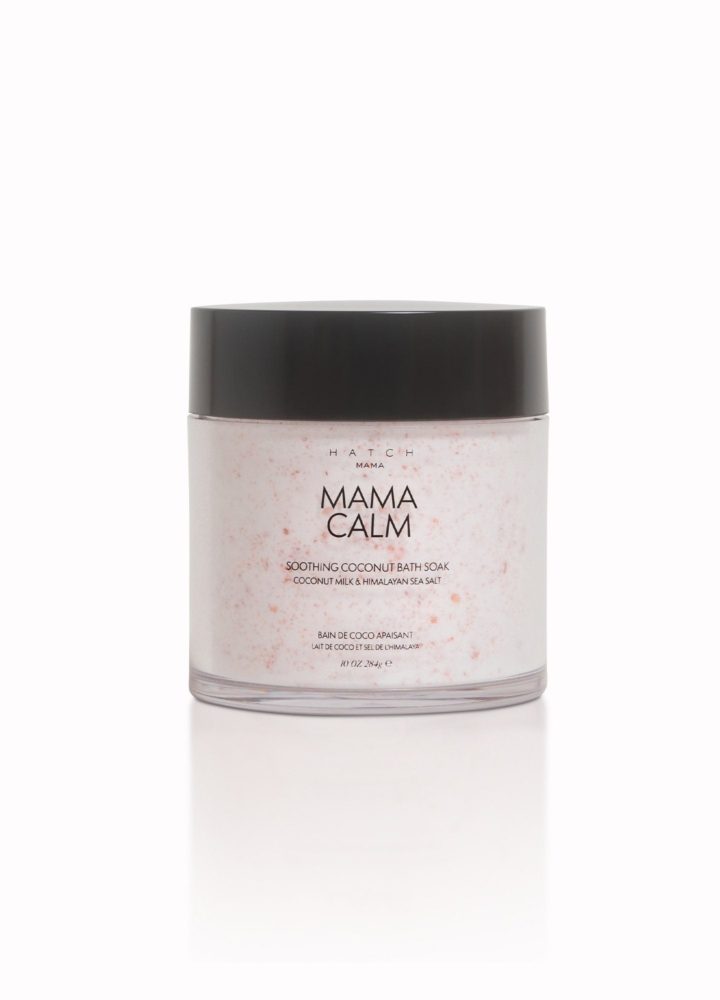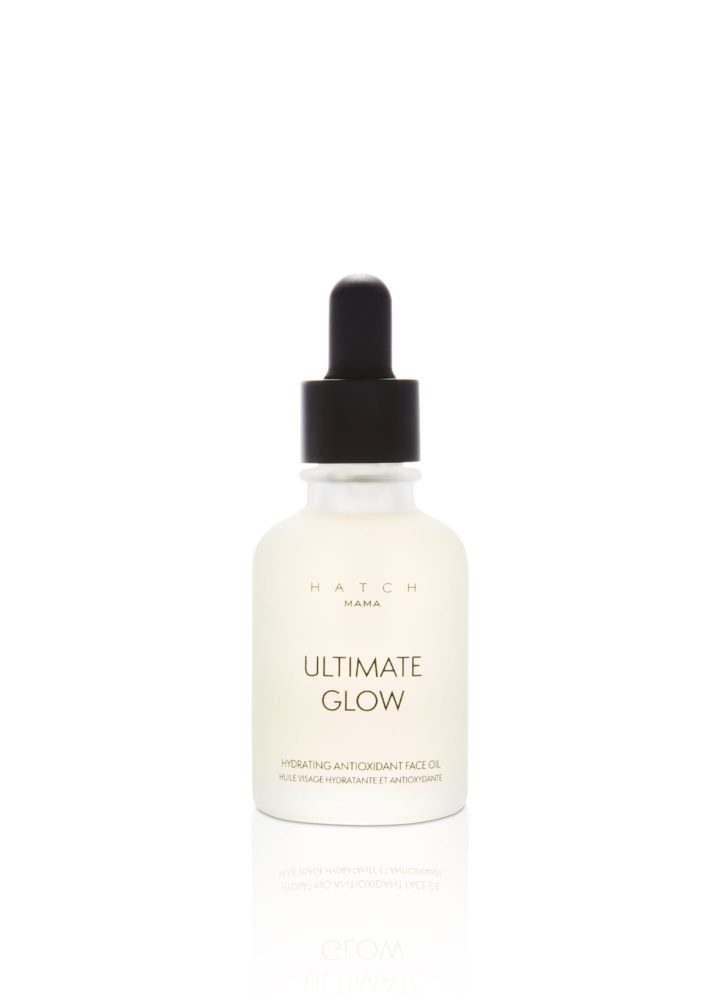Pregnancy is kinda wild and kinda amazing. We’re talking to the baby in our belly all day long in our belly and, in their own way, our bodies almost talk right back. How? Cravings.
Who knew when your late-night chocolate-covered cravings kick in, it could be your body’s way of telling you it needs more magnesium (and binge-watching your fav show).
Let’s talk about why our bodies need magnesium and when it may be beneficial to take during pregnancy.
What Is Magnesium?
To better understand why our bodies need magnesium and how it can help us throughout our pregnancies, we need to know it is.
Magnesium is a core mineral that your body needs to fuel your body’s enzymes so that they’re able to regulate your body temperature, the production of energy, protein synthesis, muscle contractions, as well as maintaining healthy bones and a healthy heart. Talk about an important role!
Magnesium can be found and absorbed best from food sources. Some foods with quality amounts of magnesium include leafy greens, vegetables, legumes, whole grains, beans, nuts, cow’s milk, eggs, seafood, mushrooms, bananas, and yogurt.
Dark chocolate is another magnesium-rich example, so if you parktake in this late-night indulgence, remember you deserve that delicious treat, and your body needs the magnesium!
Besides foods, you can also take it in the form of a magnesium supplement or apply topical magnesium creams.
What Are the Different Types of Magnesium?
Let’s do a flashback to science class, mamas, and review the different types of magnesium:
- Magnesium citrate is used to treat constipation. It should only be used for short-term relief and keep an eye out for potential side effects, including diarrhea, vomiting, electrolyte imbalance, and more.
- Magnesium oxide is sometimes used to treat heartburn, sour stomach, and indigestion.
- Magnesium chloride can help increase the levels of magnesium in the blood.
Before choosing any type of oral magnesium supplementation, reach out to your doc for the all-clear.
Why Does Your Body Need Magnesium?
As mentioned above, magnesium is a mover and shaker — it gets things done. Let’s discuss why you need this boss of a mineral and some signs you might not have enough.
Magnesium during pregnancy helps reduce the chance of fetal growth restriction, preterm labor, preeclampsia, and low birth weight. Research suggests that pregnant women who take magnesium supplements or get enough in their diets could have fewer pregnancy complications.
Some Signs You Might Need More Magnesium
The amazing thing about our bodies is they are great communicators and tell us when something is off. Just like when you get a headache and feel extra tired when you’re dehydrated, you know you need to drink more water (and put on your headache relief wrap) based on how you’re feeling.
Although one symptom may not directly point to the root cause, it can show you that something is happening internally that you may want to be aware of.
Some symptoms of a magnesium deficiency include loss of appetite, nausea, vomiting, fatigue, shaking, pins and needles, muscle spasms, hyperexcitability, sleepiness, and abnormal heart rhythms.
If one or more of these symptoms pop up, contact your doctor or midwife to see if you may be magnesium deficient. If you are, adding more magnesium-rich foods to your diet or daily supplement should get your magnesium levels to where they should be. Hopefully, this will soothe your symptoms and get you back to planning an epic baby shower.
Leaving your symptoms unchecked could be risky as untreated magnesium depletion can lead to more serious health conditions, especially during pregnancy. If anything in our body changes that’s abnormal for you or causes concern, it’s always safest to contact your healthcare provider.
Pregnancy-Related Reasons You May Need Magnesium
There are a few pregnancy conditions that require magnesium to be added or increased in your daily intake. Let’s talk about a couple:
As mentioned above, magnesium helps reduce your risk of certain pregnancy complications such as preeclampsia and preterm birth.
If you are diagnosed with preeclampsia, there is an increased risk of preterm labor. As you probably already know, there are different treatment options available, magnesium sulfate therapy being one of them.
This therapy includes administering magnesium sulfate, a mineral that helps reduce the risk of seizures and prolongs pregnancy (if needed). This treatment is usually only used in severe cases but it could be an option your doc considers.
Magnesium can be a great natural option for more mild conditions that are very common during pregnancy, such as restless leg syndrome (RLS). In this case, magnesium might reduce the urge to twitch and shake. Other natural options for RLS include iron supplements, vitamins, and lifestyle changes.
Oh, wait. There’s more: Taking the recommended amount of magnesium and calcium may help your body build and repair muscle, prevent leg cramps, and potentially prevent your uterus from contracting prematurely.
What Are the Benefits of Magnesium During Pregnancy
Just like your pregnancy test, we’re all about being positive. Now, let’s focus on all the good that comes from getting enough of this powerful mineral, especially while you’re expecting.
Helps With Muscle Cramps
Just like with restless legs, magnesium helps build and repair muscles which may help prevent muscle cramps and contractions. When you lack magnesium, your muscles could be much more likely to cramp and spasm, which can be uncomfortable and even painful.
If you are experiencing muscle cramps and spasms, you may want to consult your healthcare provider on adding a magnesium supplement or topical cream to your daily routine.
Another way to relax your muscles while also getting some much-needed self-care time is by taking a bath with a lush, mineral-rich soak like the Belly & Body Bath Soak from HATCH. Your body and muscles will feel relaxed as you pamper yourself, a win-win situation.
Improves Sleep Quality
It’s about time to slip into your fav maternity PJs and nod off, but you need a little extra support.
Magnesium is also known for being great at helping you get better sleep. It’s very common to experience interrupted sleep during pregnancy for several reasons. Sometimes you may be waking during the night to go to the bathroom (a million times) or to reposition and get comfortable (a billion times).
If you have a hard time falling asleep or staying asleep, magnesium could possibly act as a natural sleep aid. Magnesium regulates the hormone melatonin in your body, which helps your body relax and fall asleep. This handy mineral also binds to gamma-aminobutyric acid (GABA) receptors, telling your nerves to settle down and chill.
Relieves Nausea
A sign of magnesium deficiency can be nausea and vomiting. This can be confusing as morning sickness is also a common pregnancy symptom. It’s time to take out your detective hat and investigate the cause.
If the clues point you and your doc to magnesium, this supplement might be the answer to those unpleasant trips to the bathroom in the morning (and all hours of the day after that).
Helps You Stay Hydrated
Staying hydrated is oh-so-important. You deserve a tall glass of water as cool as you are. Hydration during pregnancy is at the top of the to-do list (for your body and your skincare routine).
Magnesium helps your body stay hydrated and make the most of the water you drink, but just like a mom, magnesium can’t do everything alone. That’s why magnesium teams up with potassium and calcium too.
Together, they absorb water that your cells and organs need. Magnesium fuels the potassium that keeps us hydrated. Yet, that’s not where the team work ends — calcium and vitamin D intake according to a controlled study in 2016.
Taking care of ourselves includes staying hydrated, so if this is something you struggle to stay on top of (because we all know that check list is growing every day), there are some easy steps to motivate yourself. Setting reminders is a quick step you can take if you just happen to forget to drink.
If it’s hard for you to get enough water each day simply because you don’t 100% vibe with the taste, there are a handful of ways to give your water more pizazz. For example, consider adding some lemon, lime salt, cucumber, or fresh mint. Grab them from the store or grow your own for a real Mother Earth moment.
Or you can buy electrolyte packets to add to your water; these can increase the taste and give you the minerals you need. Just make sure to check for hidden sugar in those packets; that sugar content can be sneakier than a toddler stealing an extra cookie from the table.
Prevents Constipation
Not only does staying hydrated help prevent constipation but so does magnesium. Magnesium keeps your digestive tract healthy and running smoothly, reducing the chance of you experiencing constipation.
Boosts Mental Health
Stress and anxiety affect so many of us, especially in seasons of life where there are big changes and a lot going on. Pregnancy can be glorious and exciting, but with all the changes your body is going through and the accompanying symptoms, it can be easy to get overwhelmed and stressed.
Anxiety can be challenging to deal with, especially when your hormones are already all over the place. Keeping it at bay might just make your days feel lighter. When you’re depleted of essential minerals, like magnesium, your body is not able to support itself the way it needs, so upping your magnesium intake will help lower your stress levels.
We hate to mom you about this, especially since you’re already (or about to be!) a mom, but if you’re not feeling your best, reach out for help. Your healthcare providers can create a personalized plan that’s best for you and your family and friends are there to provide the emotional support you need.
How Much Magnesium Is Recommended for a Healthy Pregnancy?
When it comes to what vitamins you should be taking and how much, you should always consult your healthcare provider first. They can run tests (like the serum magnesium test) to see where your vitamin and mineral levels are. Then, they can determine if you need some magnesium supplementation.
Pregnant women over 18 years old should take around 350 to 3600 milligrams of magnesium daily. Your prenatal vitamins most likely have magnesium in them, so your doctor or midwife will be able to tell you if you may need to take a separate magnesium supplement.
Supporting Your Postpartum Journey With Magnesium
Supporting your body the best you can doesn’t end after pregnancy. Nope! This party continues into your Fourth Trimester.
Postpartum can be quite challenging as it is a new season of change and significant transitions. Just as your body goes through so many different stages throughout pregnancy, it also changes a lot during postpartum.
Taking magnesium throughout your postpartum journey can be beneficial for many reasons. With your hormones changing faster than we ever did for gym class, magnesium may help lower stress, anxiety, or depression.
If you choose to breastfeed, you need to be drinking even more water than you are right now during pregnancy. Getting high-quality magnesium can make it easier to travel to the lactation station when the time comes.
After your baby is born, your uterus will begin contracting again to start the process of adjusting back to its non-pregnant size. When this happens, you could experience painful cramping. Taking magnesium could possibly relax those muscles and reduce the cramps. These cramps can last for weeks, so magnesium could be key in those early postpartum days.
Finally, having a nutrient-dense diet is so important during pregnancy but also postpartum. If you are breastfeeding, getting enough nutritious foods in your meals every day helps establish a robust milk supply; you’re a powerful one-woman supply chain.
Your body also just went through the most work it’s ever done and needs the best of the best foods to be replenished and recover faster. A balanced diet with magnesium and other mineral-rich foods will support your body and help you feel great. You got this, mama!
Sources:









